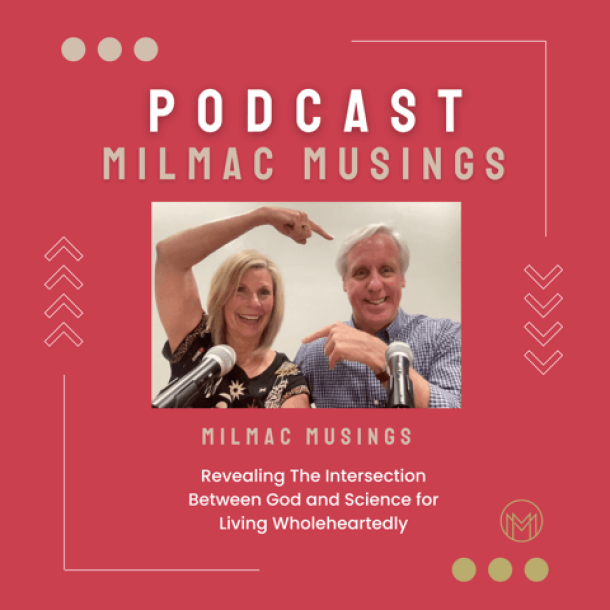This article is part two of Trust: The Foundation of Healthy Relationships. If trust is the glue that holds relationships together, and broken trust shatters our perspective, how do we learn to trust again?
This article discusses five ways to learn to trust again.
This article is the sixth (part 2 of The Foundation of Healthy Relationships) of a blog series offering practical steps rooted in Christ and biblical principles to help you build resilience and trust in God's plan. Following these steps, you'll learn to navigate life's trials with faith and confidence, leaning on Christ's everlasting support.
If you missed it, click to read Trust: The Foundation of Healthy Relationships, the fifth article in this series.
If you missed it, click to read Trusting God with His Plan After Trauma, the fourth article in this series.
If you missed it, click to read Trusting God, the third article in this series.
If you missed it, click to read Building A Resilient Faith: Jesus Our Model, the second article in this series.
If you missed it, click to read Understanding Biblical Resilience, the first article in this series.
Trust God Before Trusting Others
"The Lord is good, a strong refuge when troubles come. He is close to those who trust in him. But He will sweep away his enemies." -Nahum 1:7 NLT
"The Lord is close to the broken-hearted; he rescues those whose spirits are crushed." -Psalm 34:18 NLT
Your Past Does Not Define You
You may begin to doubt God and that He can heal you from what you've been through. But He is a strong refuge, ever-close to you, and is your healer. While you might visit doctors, counselors, coaches, or other professionals to help, God causes you to grow beyond your past.
A Recap of Our Previous Article:
- Those with harrowing pasts can learn to trust again.
- Transforming your mind takes time.
- It's crucial to heal and transform with the Truth.
- There is a fourth kind of trust to learn.
Perspective trust serves as the foundation for healthy relationships.
Perspective trust is:
- Understanding that only some people are trustworthy.
- Involves knowing trust is earned through consistent, honorable, and ethical behavior.
- Accepting the harsh reality that people you love will sometimes disappoint you.
- Knowing that God will never let you down.
Five Ways to Learn Trust
Patrick Springle recommends five ways to learn to trust and build the foundation for healthy relationships after trauma. Trusting others again after experiencing trauma can be incredibly challenging. The wounds of the past often leave deep scars, making it difficult to open up and connect with others. However, rebuilding trust is essential for forming healthy and fulfilling relationships. By taking intentional steps towards healing, you can learn to trust again and create a strong foundation for future connections. Whether seeking professional help, surrounding yourself with a supportive community, or engaging in personal reflection and prayer, these methods can help you on your journey to healing and relational restoration. Here are five practical ways to rebuild trust and foster healthy relationships after trauma.
Identify Patterns of Distrust
Acknowledging the pain of your past and the damage it has caused is crucial. Patterns such as hiding from others, dominating them, or constantly seeking to please them often arise from a desperate need for meaning and safety. However, these behaviors ultimately cause more harm than good. In the Christian experience, repentance is vital to being honest about your wrong perceptions and destructive behaviors. You can pursue what is good and right through repentance, leading to genuine healing and transformation.
Gain A New Perception of God
People's most intimate human relationships often shape their perception of God. However, knowing God personally will create change, and a new perception will unfold as God reveals His true character and immense love. Being part of a community of believers experiencing God's goodness and grace can help individuals develop a healthier and more accurate view of Him.
Take Steps to Trust Perceptively
People who trust unquestioningly should exercise more caution in relationships, avoiding quick and complete trust. Those with aggressive distrust need to practice being quiet and calm, fostering an encouraging rather than intimidating presence. Individuals with passive distrust should work on being more open and vulnerable with those they trust. Each of these adjustments represents a healthy step towards growth and positive change.
Find People Who Understand (Your Tribe)
Changes in the heart do not happen in isolation. Connecting with others who can understand, encourage, and lovingly speak the Truth about God and oneself is essential. One trustworthy, honest, and wise individual can make a significant difference. For those who have experienced severe abuse or abandonment, seeking the guidance of a pastor, professional counselor, or trauma-informed coach can provide the necessary insight and support for meaningful change.
Absorb The Truth About God
Engaging with the Scriptures with a committed heart and in prayer is essential to learn to trust. Seek out verses that hold special significance and commit them to memory. God is, and always will be, faithful to His word. You can rely on Him to guide you and provide wisdom, peace, and strength.
We'll close with this Biblical Promise. Take it to heart. Meditate on it. Trust in Him. He knows the plans He has for you and they are not to harm you, but to do good.
Trust in the Lord with all your heart, do not depend on your own understanding; Seek His will in all you do, and he will show you which path to take. Proverbs 3:5-6 NLT
In our next article, we discuss overcoming doubts and fears through faith.







